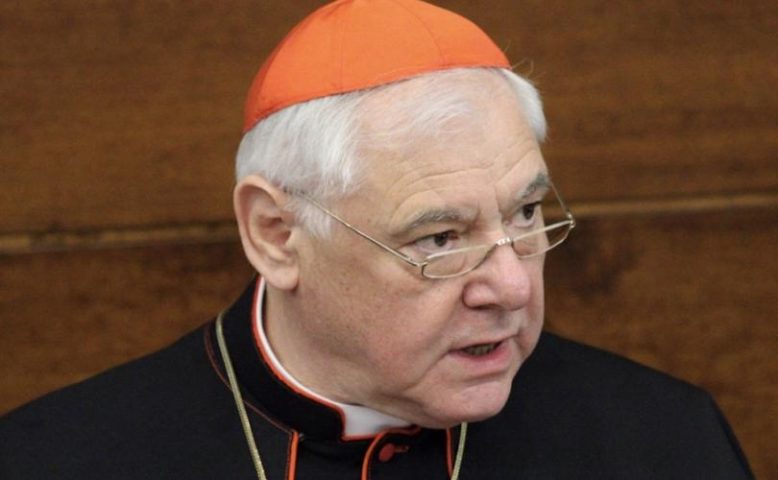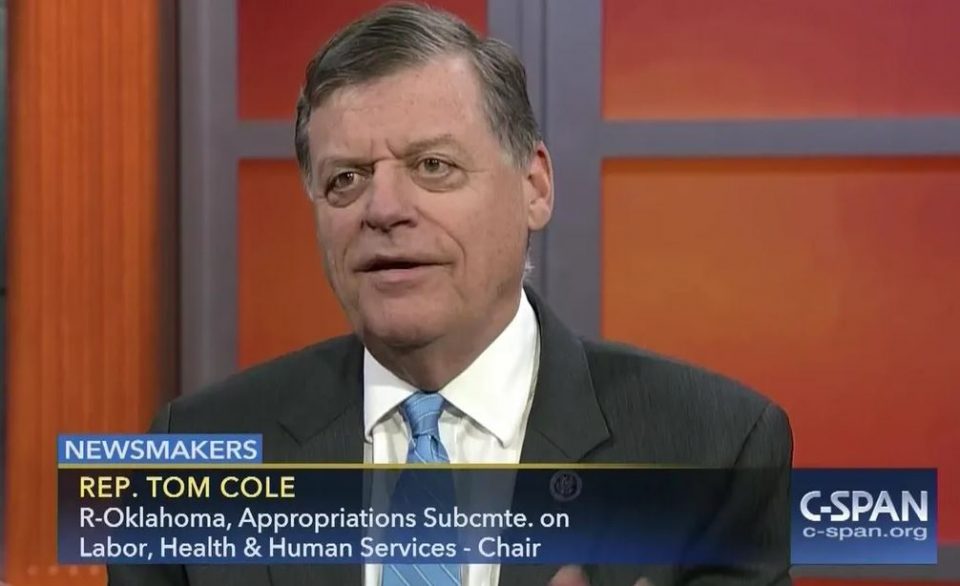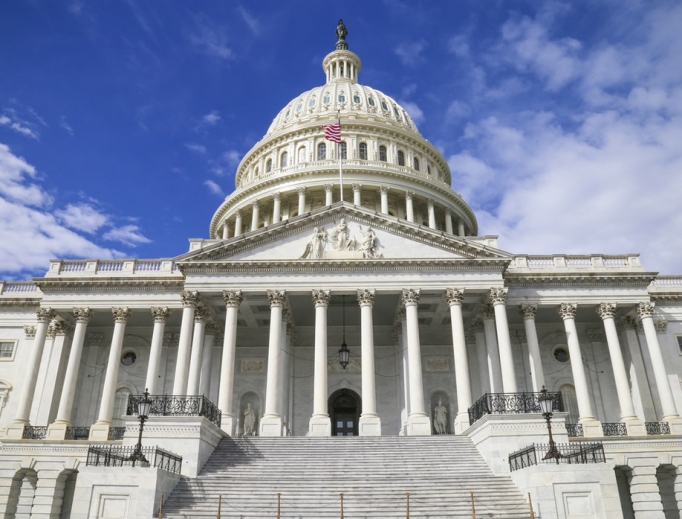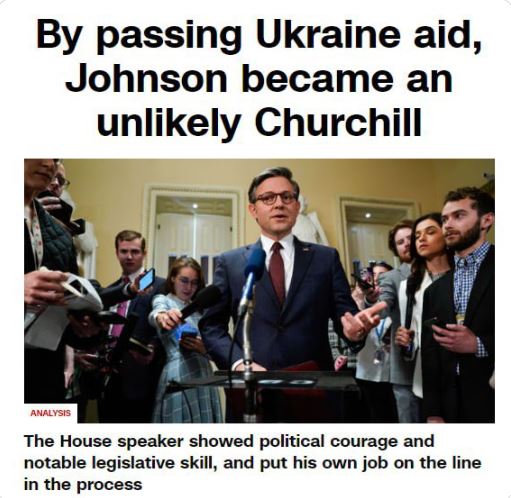Vatican’s Former Doctrine Chief Sounds Alarm on Francis’ Plans to Reorder Curia, by Dr. Maike Hickson

CNA: Civil Appeals Court Dismisses Legal Challenge, Says Sheen’s Body Can Go to Peoria
May 7, 2019
Father Flanagan is an Intercessor for Our Times, by Patti Armstrong
May 7, 2019
Cardinal Gerhard Muller, prefect emeritus of the Congregation for the Doctrine of the FaithDiane Montagna/LifeSiteNews
By Dr. Maike Hickson, LifeSiteNews, May 6, 2019
 The Vatican’s former Prefect of the Congregation for Doctrine has strongly criticized a draft document containing Pope Francis’ plans for an overhaul of the curia — where “doctrine” is expected to take a backseat to “evangelization” — stating that the plans do not contain a “convincing concept of the origin, essence, and mission of the Church,” and, pointing out that one passage of the document even contains “shocking theological cluelessness.”
The Vatican’s former Prefect of the Congregation for Doctrine has strongly criticized a draft document containing Pope Francis’ plans for an overhaul of the curia — where “doctrine” is expected to take a backseat to “evangelization” — stating that the plans do not contain a “convincing concept of the origin, essence, and mission of the Church,” and, pointing out that one passage of the document even contains “shocking theological cluelessness.”
Cardinal Gerhard Müller, former Prefect of the Congregation for the Doctrine of the Faith, made his comments about the draft document of the curia reform plan, set to be promulgated at the end of June on the Feast of Saints Peter and Paul, in a new interview with German regional newspaper Passauer Neue Presse. The draft has been prepared by the members of Pope Francis’ Council of Nine Cardinals, and it is titled “The Roman Curia and her service to the Church in the world today.”
One of the German cardinal’s objections to the current draft is that the Roman Curia “finds itself in a state of suspension [“ortlosen Schwebezustand”], because it is not anymore clearly oriented toward serving the Pope for the Universal Church.” For him, this “future ‘Apostolic Constitution’ is a conglomeration of subjective individual ideas, pious wishes, and moral pleas along with individual quotations from Council texts and statements of the current Pope.”
Most importantly, explains Müller, there is a lack of clear distinction “between the secular institutions of the Vatican as a sovereign state, the Holy See as a subject of International Law, and the ecclesiologically founded primacy of the Pope” who is, “as bishop of Rome, in the succession of the Apostle Peter, the visible principle and foundation of the unity.”
Here, Cardinal Müller sees that the “fatal mistake” Pope Paul VI’s own earlier curial reform – which made the “Secretary of State the center of the Curia” – is now being worsened. According to Müller, the Secretary of State serves the Pope in the “fulfillment of his mission,” however, “the highest mission is his [the Pope’s] Magisterium as a member and head of the College of Bishops.” “The secular duties,” the cardinal adds, “are only secondary and not at all fundamentally linked to the papacy.” On the contrary, sometimes the Secretary of State has even “darkened” the Pope’s “essential mission.”
“To now give today priority to the secular tasks over the spiritual mission is a mistake that urgently needs to be avoided,” Cardinal Müller states. Thus, he warns against a “secularization of the concept of the Church,” as if she is “to be run like an international company” and as if “it is about a balance of power” between a mother company and subsidiaries.
Further commenting on the new organization of the different organs of the Roman Curia as described in the draft of the curial reform, Cardinal Müller tells the Passauer Neue Presse that “there is no Suprema [the supreme office – originally the Congregation for the Doctrine of the Faith] anymore, because all dicasteries are to be on the same level.” He sees here a “planless listing of 16 ministries who somehow are to serve the Pope, the individual bishops, and the bishops’ conferences.”
As an example, the Pope’s alms office is now listed prior to the liturgy and the Sacraments, the prelate points out. Additionally, “evangelization comes on first place, even though it is a task of the Universal Church and not a specific task of the Pope.”
Here, Cardinal Müller asks the crucial question: “What, then, is the difference between the Dicastery for Evangelization and the Dicastery for the Doctrine of the Faith, which, too, is tasked to serve ‘the Pope and the bishops in the proclamation of the Gospels in the whole world’ [a quote from the draft itself]? Is there on the one side an evangelization without content and on the other side the proclamation of the ‘Faith in Christ, the Son of the Living God’”?
“Even though,” Cardinal Müller explains, “the Magisterium of the Universal Church is the very reason for the existence of the papal primacy, the teaching of the Faith is being mentioned in the draft merely as one random task of the Pope among many others, and most importantly, now to be subordinate to his secular duties.”
Müller also points to one passage in the draft document, describing the duties of the new Dicastery for Doctrine, that contains “shocking theological cluelessness.”
The Cardinal also notices a “wrong and deviant use of fundamental notions of Catholic theology,” as well as a “secularized way of thinking” of those who demean the Congregation for Doctrine as a sort of “schoolmaster.” He also criticizes the notion of strengthening the “periphery” to the detriment of the “center,” Rome. This might sound “populistically plausible,” Müller explains, but “it sounds shrill and out of tune to a theologically formed ear.”
As recently reported, Cardinal Gerhard Müller told LifeSiteNews that Pope Francis did not send to all his cardinals a draft of his curial reform. In light of the piercing critique by Cardinal Müller as presented here, this would be direly needed, for the good of the Church.
Several media outlets had reported that the role of the Roman Curia as a whole will be revised. As Crux writes: “Once the text is approved – which will be on a 25-year “trial period” – the Vatican dicasteries will no longer be instruments for the pope to supervise local churches, but will actually be there to serve bishops from around the world. They will no longer be a ‘body’ in between the pontiff and the college of bishops, but an institution that serves both.” The largest change will be that a sort of “super dicastery” for evangelization is planned, which is to be more important than the Congregation for the Doctrine of the Faith (CDF).
Fr. Thomas Weinandy, a member of the International Theological Commission who was removed from his position as an adviser to the US Conference of Catholic bishops in 2017 following his criticisms of Pope Francis, told LifeSiteNews in a recent interview that there’s “no problem” with making Evangelization as the “primary pastoral work of the Church,” but “if it means that within that Evangelization, the role of doctrine is going to take second place, or placed on a lower level, then that would undercut the whole purpose of evangelization.”
“The good news that is offered is precisely the Mysteries of the Faith — the Church’s doctrinal and moral tradition,” Weinandy said. “How can one preach the Gospel without telling others of the marvelous mysteries of the Trinity, the Incarnation, the saving death and resurrection of Jesus, or the great gift of the Sacraments, etc? Doctrine and the Church’s moral teaching is what evangelization is all about. It is the Good News!”
Without doctrine and moral teaching, “there is no evangelization,” he continued. “What may be proclaimed would simply be empty words that do not bring life — here on earth and forever in heaven. It would be contrary to the Church’s whole evangelistic tradition — beginning with the Apostles themselves,” he said.
_____________________
Dr. Maike Hickson was born and raised in Germany. She holds a PhD from the University of Hannover, Germany, after having written in Switzerland her doctoral dissertation on the history of Swiss intellectuals before and during World War II. She now lives in the U.S. and is married to Dr. Robert Hickson, and they have been blessed with two beautiful children. She is a happy housewife who likes to write articles when time permits.
Dr. Hickson published in 2014 a Festschrift, a collection of some thirty essays written by thoughtful authors in honor of her husband upon his 70th birthday, which is entitled A Catholic Witness in Our Time.
Hickson has closely followed the papacy of Pope Francis and the developments in the Catholic Church in Germany, and she has been writing articles on religion and politics for U.S. and European publications and websites such as LifeSiteNews, OnePeterFive, The Wanderer, Rorate Caeli, Catholicism.org, Catholic Family News, Christian Order, Notizie Pro-Vita, Corrispondenza Romana, Katholisches.info, Der Dreizehnte, Zeit-Fragen, and Westfalen-Blatt.




